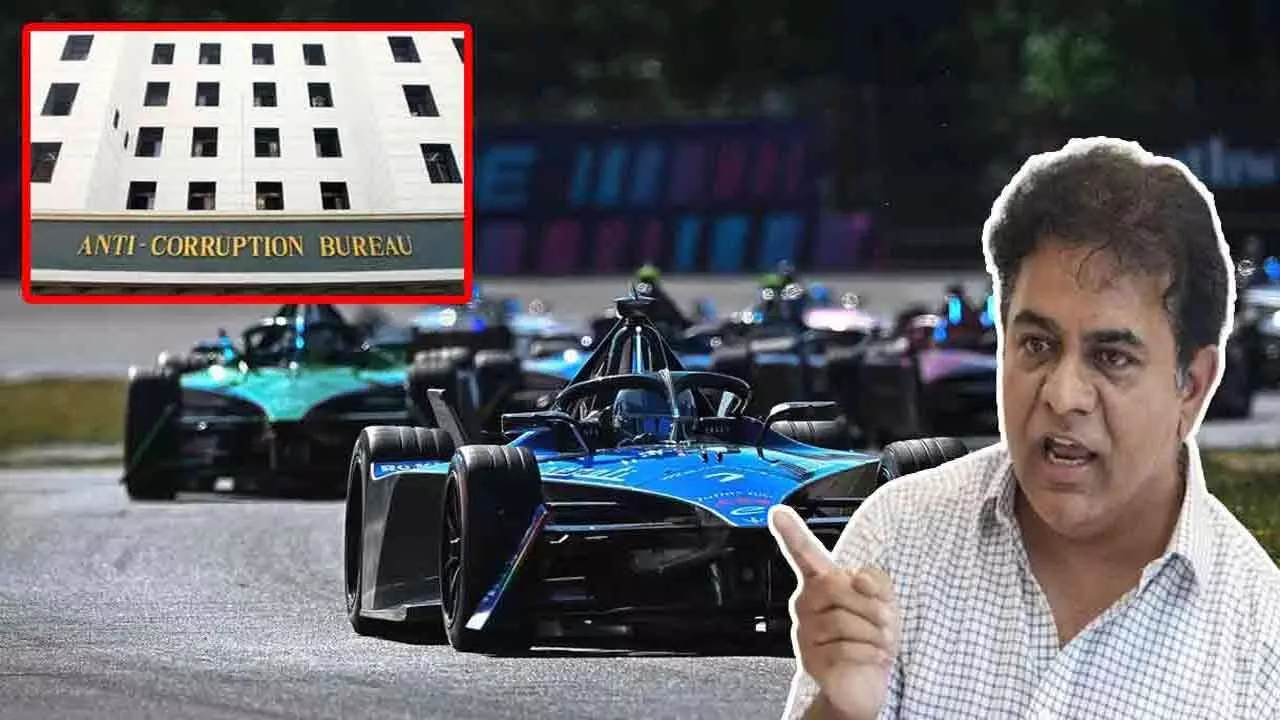The early arrival of the monsoon may have cooled Telangana’s skies, but the political heat is only rising, and squarely in the eye of the storm is the Kalvakuntla clan.
The Congress government, led by Chief Minister A. Revanth Reddy appears determined to hold the KCR dynasty accountable. The widening phone-tapping scandal has turned into a major flashpoint, with investigations reaching deeper into the former regime’s inner workings.
On May 24, the state Anti-Corruption Bureau (ACB) summoned K.T. Rama Rao, former IT Minister and son of ex-Chief Minister K. Chandrasekhar Rao, in connection with the murky E-car race case. KTR has so far evaded appearance, citing prior commitments, though he posted on X (formerly Twitter) that he is “willing to cooperate.” The ACB, unmoved, has now issued a fresh notice, asking him to appear on May 28.
But this isn’t mere political jousting — it’s a high-stakes criminal investigation with explosive implications. The former ruling family is now staring at serious charges of abuse of state machinery and alleged plunder of public funds.
Central to the phone-tapping scandal is a chilling confession by former Deputy Commissioner of Police (Task Force), P. Radhakrishna Rao, now under arrest. In his statement, Rao detailed a systematic and illegal surveillance operation allegedly masterminded by KCR’s inner circle. Opposition leaders, dissenters, and even private citizens were reportedly placed under surveillance. Their calls were tapped, their data mined and manipulated — not for security, but for political gain: to muzzle critics, twist narratives, and allegedly tilt electoral outcomes.
This is no longer just about politics. It’s about power without accountability, and a democracy manipulated from the shadows.

Let’s turn to the more sinister heart of the matter: the phone-tapping scandal. This wasn’t the work of a few rogue officers — it was an institutional operation.
A secret unit within the Special Intelligence Bureau (SIB), headed by Inspector D. Praneeth Kumar and reporting directly to then SIB chief T. Prabhakar Rao, was allegedly tasked with political surveillance. This was not a side hustle. The operation reportedly had the tacit — and at times direct — approval of the then Chief Minister himself.
In his confession, former DCP P. Radhakrishna Rao exposed how the illegally intercepted data was systematically weaponized. Surveillance wasn’t limited to political rivals; it extended to civil litigants, dissenters, and even neutral citizens. Phone tapping was used to settle private disputes, intimidate opposition supporters, and track unaccounted election cash.
Rao further revealed that the city’s Police Commissioner was often brought in to lend official cover to these covert ops. Crucially, updates were regularly shared with KCR’s family, with instructions funneled through trusted intermediaries to maintain deniability and avoid leaving a paper trail.

The scale is staggering. Investigators claim the operation ran from before the 2018 Assembly elections through to the 2023 polls, including the 2019 Lok Sabha elections and multiple bypolls. The political objective was clear: protect the TRS (now BRS), control Hyderabad, and quash any rival threat, however minor.
That’s not all. Rao claimed his appointment to the key post in the Task Force was influenced by caste considerations, with KCR allegedly preferring someone from his Velama community known for loyalty and muscle power. The objective? To tighten the ruling party’s grip on Hyderabad using coercive policing.
Even more damning, at least 32–35 members of the KCR family are now under legal scrutiny, facing allegations ranging from corruption and illegal surveillance to electoral fraud. Many of the victims, previously too afraid to speak, are now coming forward with complaints. The tide has turned.

Revanth Reddy’s Congress government, which came to power promising transparency and accountability, has given state agencies a free hand. Reddy himself claims to be a victim of the illegal phone surveillance under the previous regime — a claim that lends emotional and political weight to the ongoing crackdown.
Critics of KCR long accused him of running Telangana like a private estate, where police, intelligence, and administrative systems functioned to serve one family, not the state. That accusation now finds disturbing validation in sworn confessions and emerging evidence.
The question now is not whether the KCR family will face consequences — it’s how deep the rot runs and how far the current government is willing to go in cleaning up a decade-long mess. What’s clear is this: for the Kalvakuntlas, the days of unchecked power are over.






